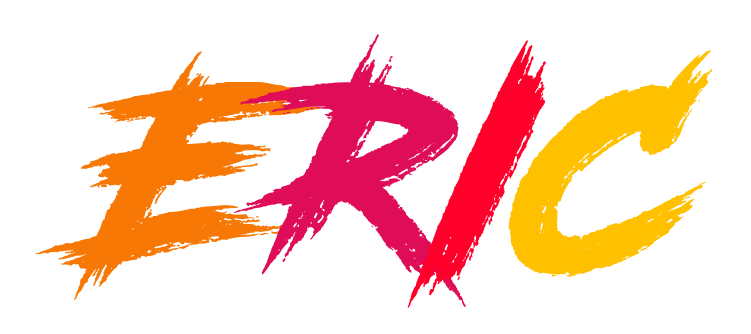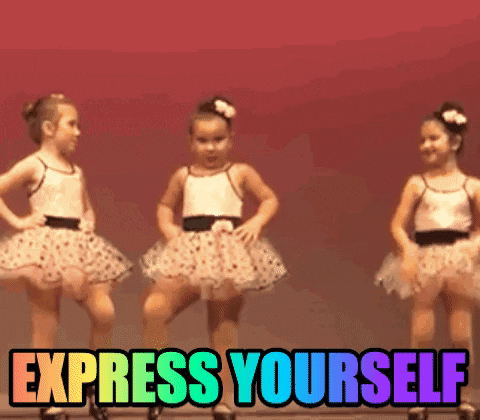
6 Tips to get started as a Gen Z freelancer
With #WFH (workfromhome) becoming the new normal, freelancing has also become a viable career choice for all of us creatives. From filmmakers to social media managers, content creators to even your regular lawyers, there are freelance opportunities available in every field today.
ERIC interviewed Sandra Haridal, Production Management Assistant at BBC Sport, who started her career as a freelance runner with BBC Sport and is now working as a full-time employee. She has shared some amazing, tried & tested tips to get started as a freelancer (or secure any job, really useful tips out there!) for all the Gen Z creatives trying to finesse the art of freelancing:
1- Recognise your skills & use them as your strengths
Believe it or not, you have a skill set that is unique to you. Of course, many people know how to use Photoshop or how to write an article but if you forget the business point of view, your unique skills such as - being empathetic, thriving under pressure or command on different languages can play an important role in securing a freelance gig. Look inside, find out and define what you’re good at and use them as your strengths. Life of the fucking party, you are? Well, then use them to network - let people know what you do & make an impression so the next time they need someone, they think of you. Your CV will get you the job but your personality will decide how you move forward. Besides, any and all work experience is appreciated in the industry, Understand how it’s relevant to what you’re applying for and make sure you fucking sell it (basically, yourself) to them.😌
2- Tailor your CV to the job applied
The common mistake we all make, mostly because of procrastination, is that we use the same CV for all the jobs we apply for. I mean, you don’t wear the same clothes to all the parties, do you? THEN WHY THE HELL YOU THINK THE SAME CV WOULD WORK EVERYWHERE? Sense the tone here, Karen.😆
Every different job demands a different set of skills from the applicant. Make sure to understand and present your experience in such a way that it aligns with the specifications in the job advert. Your management experience could be about managing your uni work, your little brother & an internship together. That must have taught you multitasking! The way you manage your Instagram account, create TikToks or like to journal at the end of the day - they sound like social media management, videography & content writing to me. 🤷🏽♂️ Not to forget, the recruiter only cares about the skills you have that match the position. Only add relevant skills to the CV.
I bet you didn’t know that freelancing is a big part of BBC Sport. You can also become a part of the BBC talent cloud by dropping in your details. They are always looking for talented freelancers who are keen to join the broadcasting industry and you might be the next one!
3- Familiarise yourself with the company
Indeed, a very important step. Before applying for any job, freelance or otherwise, make sure you familiarise yourself with the company and its mission statement. What the company does and why? Consume their content. Read about their latest projects. Learn about their stakeholders. Definitely, check out all their social media platforms. Make notes. Connect with people. Find out their pain points. What can you offer to the table that no one else can? Prepare three content ideas to pitch. Let them know that you’re a SUPERFAN. And I swear, it shall leave a good mark. 😉
4- Growing your network in the industry
The more you network with people, the more you get closer to new & unexpected opportunities. Connect with new people. Interact within a like-minded community. (Oh btw, that’s coming up on the ERIC app!) Sandra Hardial shared, “Try to connect with Talent Managers.” Yes, reach out to people who have the job of reaching out to you. And if you know people & people know what you do & how good you’re at it, chances are they will recommend you to their colleagues. A strong network provides you an edge - getting insights, insider information on job openings & movement within the industry. Use social media platforms for your career development by connecting with people from the industry you want to get started in. 🧐
Did you know that Sandra graduated from Royal Northern College of Music? She studied music - learned to play piano & keyboard. The point being, you don’t necessarily need experience in the sports industry to get started. Just the right attitude.
5- Sending cold emails (with a strategy)
Don’t be shy to send emails to people. Let them know that you exist. Send in cold emails to recruiters, talent managers, editors, music labels, HR managers or anyone else that will be helpful for you to secure that job. Out of 100 emails, you might not hear back from 90 of them but if you are getting 10 people interested to work with you, that’s a HUGE step forward. 🤩
Some crucial tips to remember while sending a cold email:
Identify the right person to contact. The CEO will never get back to you, you know?
Clearly state your reason to contact them. Why you? Why them? All that jazz.
Take baby steps. The first email should be as simple as scheduling a call to discuss things further. Take your time. Develop a relationship.
Show your interest in the company by personalising your message. Comment on the recipient’s latest achievement. Let them know you’re not another sheep from the heap, you’re different.
6- How to maintain a portfolio? (and why?)
Not that it’s least important but rather the most obvious thing to do - have a mindblowing portfolio, mate. At the end of the day, everything else stated above is bollocks if you don’t have the quality work to prove your worth. Invest your time in your work. Understand the value of your time and invest in projects (personal or commercial) you think will benefit you in the long run. Having a certain niche is also very important. Instead of showing that you can do everything, focus on having your own style. Create yourself as a brand. Have your USPs ready.😎 Lastly, here are some tips on maintaining a portfolio:
Create a digital portfolio with your unique voice. Make sure you look professional & approachable.
Add references & contact details of the people you have worked with before. You will come off as more authentic & reliable.
Have a schedule. Create fresh content. Show that you don’t need someone lurking over your head to get things done on time.
Show off your previous clientele. If you’ve worked with a well-known brand, it’ll add more weight to your experience.🤑🤑
Wanna know which CV will stand out if you apply for a freelance position at BBC Sport? Worry not! We asked Sandra for you and she said, “A CV that demonstrates which transferable skills you’ve got. How your past experience is relevant to the job you’re applying for and keeping the CV concise.” The recruiter has to go through hundreds of applications for one job, make sure you make their job easier by keeping it clear & to-the-point.
Follow BBC Sport on the ERIC app to keep up to date on their updates and new entry-level opportunities.




